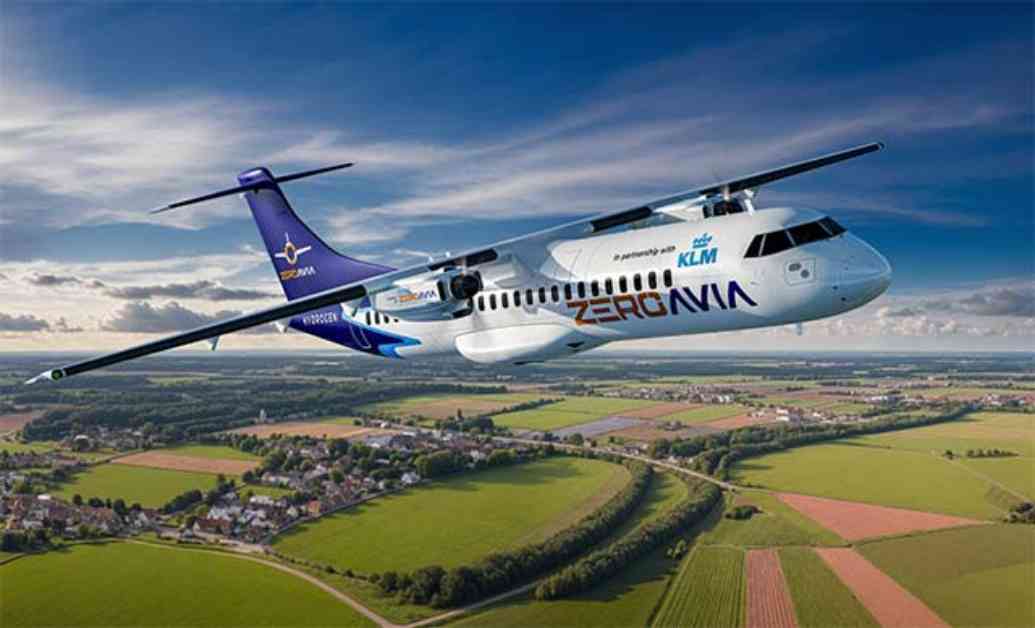ZeroAvia and KLM Royal Dutch Airlines have announced a partnership to conduct a test flight using ZeroAvia’s ZA2000 zero-emission, hydrogen-electric engines for large regional turboprop aircraft. These engines utilize hydrogen in fuel cells to produce electricity, which then powers electric motors to rotate the aircraft’s propellers. The only byproduct of this process is low-temperature water vapor, leading to a significant reduction in climate impact compared to traditional kerosene-fueled flights.
The companies have set a goal to carry out an initial A-to-B flight demonstration between two airport locations by 2026. In addition to selecting the most suitable airport pair for this demonstration, efforts are underway to secure regulatory permits for flight operations, ensure a stable supply of liquid hydrogen fuel, and establish the necessary infrastructure for aircraft fueling.
By collaborating on this project, KLM and ZeroAvia are paving the way for cleaner flight options within KLM’s network. The demonstration initiative is also expected to expedite the development of operational concepts for hydrogen-powered aircraft throughout the European Union.
KLM is committed to enhancing its sustainability efforts and views the adoption of advanced technologies like hydrogen and electric aviation as a key component in the aviation sector’s decarbonization strategy. KLM and Air France’s maintenance divisions have already been collaborating with ZeroAvia to expand their knowledge base on maintaining and servicing hydrogen fuel cell planes.
ZeroAvia has conducted extensive testing on a prototype of its ZA600 engine aboard a Dornier 228 aircraft at its UK facility. The company has also completed advanced ground tests in both the US and UK to validate the key technologies required for the ZA2000 system, including cryogenic tanks for liquid hydrogen storage and proprietary high-temperature PEM fuel cells and electric propulsion systems. The ZA2000 engine is designed to support regional turboprop aircraft with up to 80 seats, such as the ATR72 or the Dash 8 400.
This collaboration between ZeroAvia and KLM marks a significant step towards achieving sustainable aviation practices and reducing the environmental impact of air travel. By investing in innovative technologies and fostering partnerships, the aviation industry is moving closer to a more eco-friendly and efficient future.









